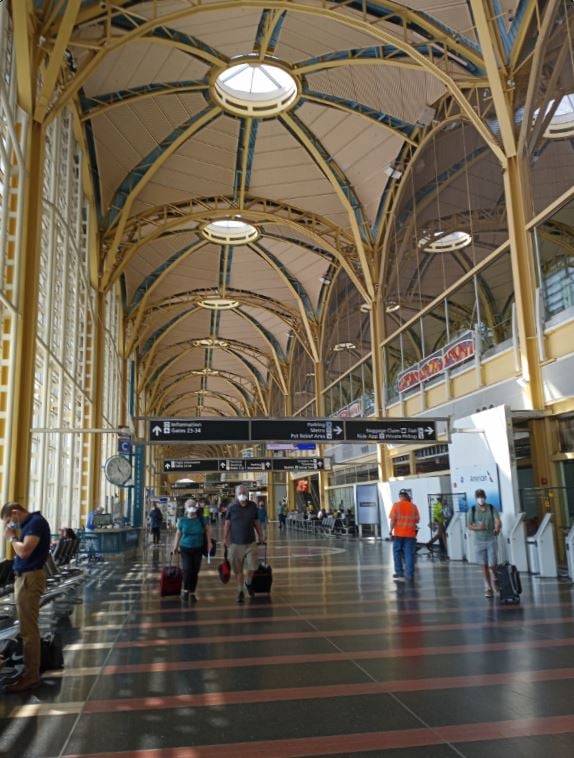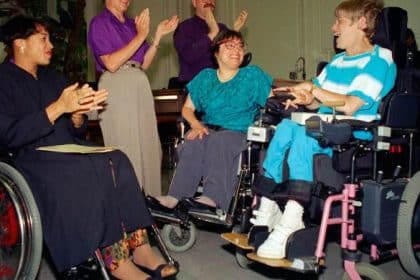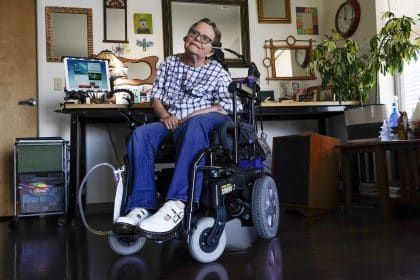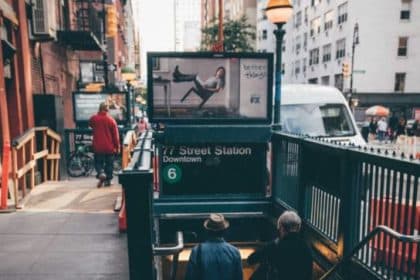Airlines Advised to Improve Access for Disabled Passengers

WASHINGTON — Airlines were forced to address turmoil about disability access Thursday in Congress at a time they already are embroiled in complaints from employees and passengers.
Heather Ansley, a government relations executive for the Paralyzed Veterans of America, summed up many of the concerns for a congressional panel when she said, “The system simply is not designed to accommodate people who use wheelchairs in air travel as we have it today.”
Lawmakers on the House Transportation and Infrastructure Subcommittee on Aviation added misgivings expressed by other disabled travelers, namely the blind, the deaf and the mentally impaired.
“Many barriers still exist,” said Rep. Garret Graves, R-La.
The number of airline passengers this year has reached 99% of pre-pandemic levels, according to the Federal Aviation Administration. About 27 million of them are disabled.
Last year, the U.S. Department of Transportation received 1,394 disability-related complaints, a 54% increase from 2019.
The hearing coincides with the release Thursday of a Government Accountability Office report on the obstacles faced by disabled airline passengers.
Airlines have made significant progress in assisting disabled passengers to gain air travel access since Congress approved the Air Carrier Access Act of 1986, the GAO reported. The act prohibits commercial airlines from discriminating against disabled passengers.
It is enforced by the U.S. Department of Transportation, which also is authorized to develop regulations that implement the federal law.
The regulations require airlines to help persons in wheelchairs board and leave airplanes and they must allow blind persons to travel with service dogs. Airlines more recently have designed smartphone applications to help people with low vision navigate through terminals.
Despite progress, obstacles persist, the GAO reported.
“Transportation Security Administration’s screening practices may more frequently subject passengers with disabilities to additional screening,” the report said. “GAO also found that passengers with disabilities may encounter barriers that airlines are responsible for addressing, including difficulties obtaining wheelchair and customer assistance and accessing onboard lavatories. Airlines also do not always properly handle passengers’ special accommodation requests or stow wheelchairs without damage.”
The GAO recommended “increased transparency into [the Transportation Department’s] enforcement of consumer protection issues” for the disabled and enhancing the Transportation Security Administration’s “efforts to protect civil rights in passenger screening.”
Many of the recommendations and problems pointed out by the GAO are addressed in the Air Carrier Access Amendments Act introduced in Congress last year.
The pending bill would require that airplanes be designed to accommodate people with disabilities and that airlines meet accessibility standards. The standards would cover safe and effective boarding and deplaning, visually accessible announcements and better stowage options for wheelchairs and other assistive devices.
Goals of the bill would be met through new infrastructure and training of employees.
Brian Ryks, a Minneapolis, Minnesota, airport executive representing the Airports Council International-North America, agreed the improvements Congress seeks are worthwhile but added, “It comes down to funding first and foremost.”
The $1.2 trillion bipartisan infrastructure law that President Joe Biden signed into law last year helps, he said.
In July, the Transportation Department announced that $1 billion of it would be used to improve terminals at 85 airports. Airports have discretion to use some of the money for disability access.
The Transportation Department is expected to allocate additional funds from the federal appropriations law in grants that have not yet been announced.
Ryks questioned whether it will be enough to address all the accessibility improvements Congress is demanding.
Any new disability access requirements would add to challenges airlines are facing.
Earlier this week, the Transportation Department fined a half-dozen airlines a total of more than $7 million for failing to offer customers prompt refunds. Passengers were owed the refunds largely because of flight delays and cancellations.
Airlines acknowledge problems keeping up with business as their boom times return after the COVID-19 pandemic.
They also are dealing with labor problems from employees demanding higher pay. Pilots, flight attendants and other employees participating in airport picket lines say that if the airlines have recovered, the workers should have their raises restored that were put off during the pandemic.
Tom can be reached at [email protected] and @TomRamstack






















